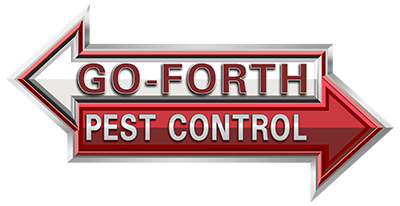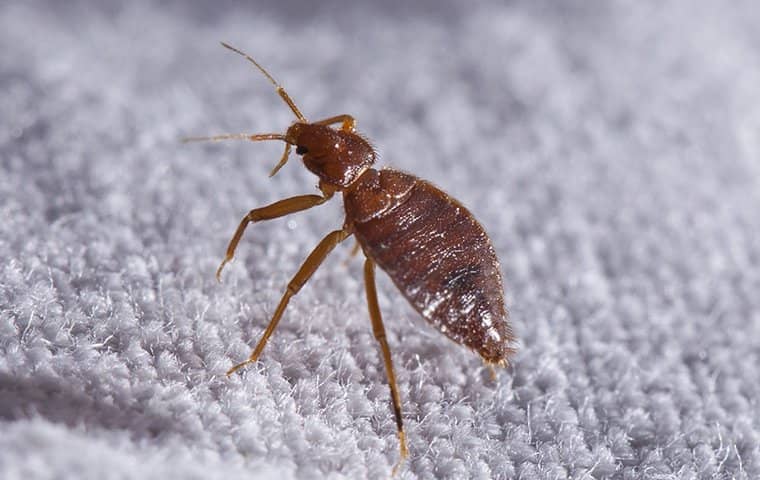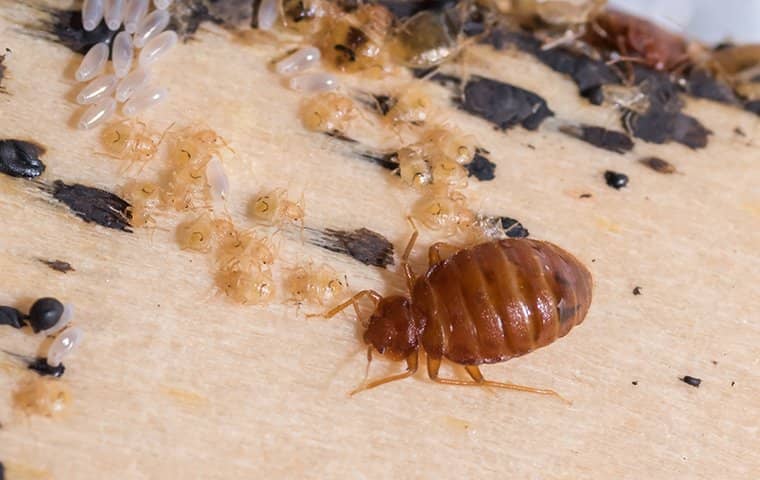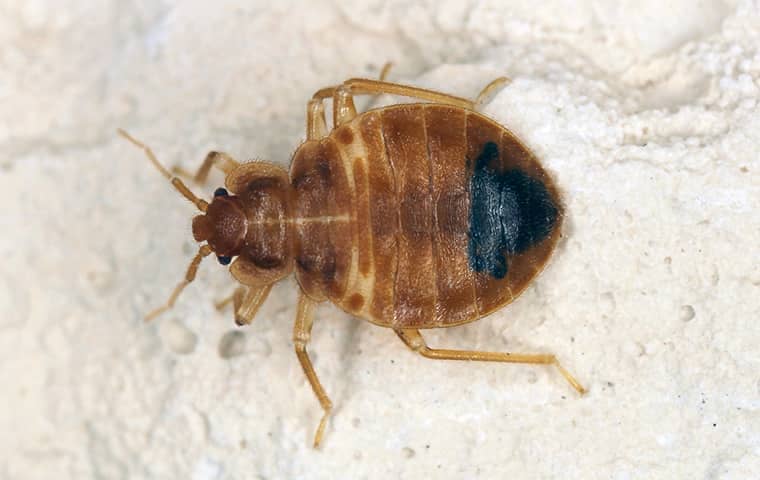When it comes to any kind of pest control, there are things you can do, while others you should leave to a licensed pest management professional. We're not saying you have to choose one or the other. In most cases, you need both. For example, your pest technician can use professional-grade materials to seal gaps and cracks pests use to enter your home, but when it comes to home repairs, that is something you'll need to address.
Termite control is one of the exceptions. While there are things you can do to prevent a termite problem, in all cases, your certified termite control technician will provide a better solution. That means you can relax and put termite control completely out of your mind. If that sounds like the way you'd prefer to go, contact your Go-Forth Pest Control service team for professional pest control services in Charlotte.
If you'd like to learn how to help prevent termites yourself, we have some expert tips to share today. We'll look at termite identification and detection, discuss how termites behave, give you steps to prevent termite damage, and share with you what professionals use for effective termite control in Charlotte. In this short article, you'll find everything you need to know to understand termite problems.
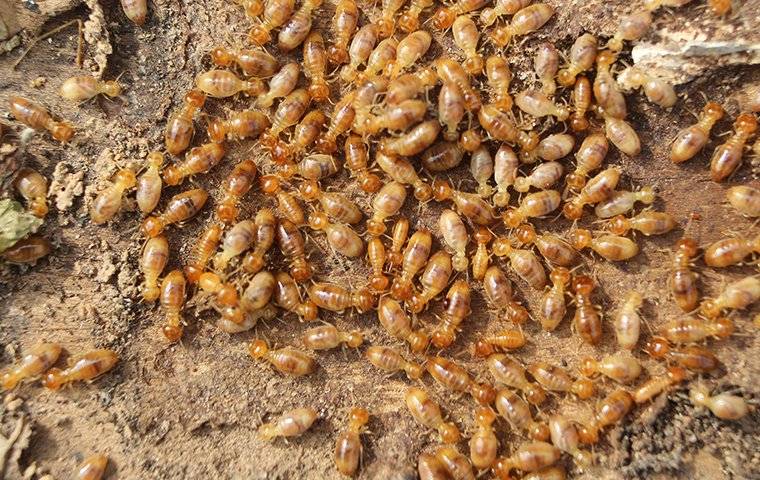
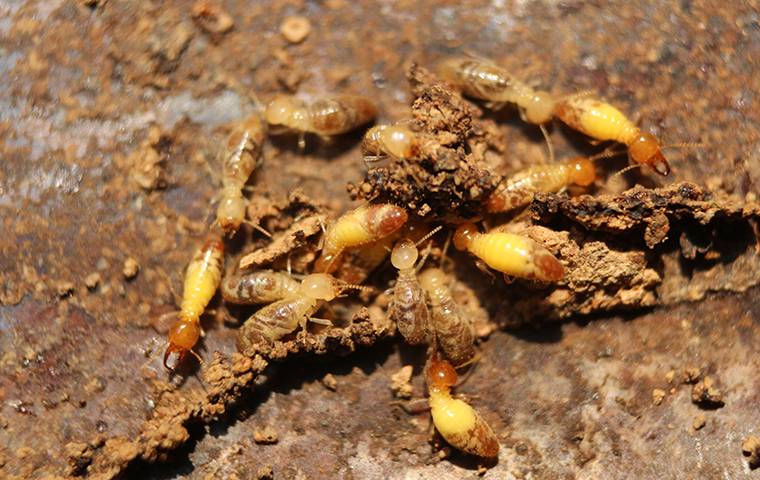
How To Identify Termites: Types, Behaviors, And Warning Signs
The most important thing any property owner can do to prevent termite damage is to catch trouble brewing. To do this, you'll have to know what that trouble looks like and believe us when we say it is easy to miss the warning signs. Let's quickly look at the different types of termites in a colony, some of the alerts they provide, and why they're so elusive.
Workers are the most plentiful termites in a colony—by far. The workers are the termites that find food and eat it. None of the other termites do this. They get their food from the workers through a sharing of fluids.
While plentiful, termite workers are incredibly elusive. They hide from view for two reasons—to avoid the light and to stay hydrated. When workers crawl around in your yard, they'll stay underground or under things that lay on the ground. You'll have to pick items up to find these insects. When you do, you may still miss them. A termite worker is 1/8 of an inch long. If you're not looking closely, it can disappear before you can take a closer look.
Soldier termites are not nearly as numerous as worker termites, but they are larger. When you go looking for termites underneath objects in your yard, soldier termites can help you find them due to their size. They're also a darker color and have black pincers on their heads. You'll find soldiers protecting the workers.
Swarmers aren't nearly as elusive as worker termites because they will travel daylight as they swarm from their underground nests. Although they can crawl on your exterior or interior walls during the day, you may still miss them.
Termite swarmers appear in spring and only swarm for a short period. We're talking minutes, not hours. When they finish swarming, the swarm will break apart into many couples. These couples will disappear into the ground to create nests. While only a fraction of these couples will successfully create a nest, it only takes a few to make a termite problem worse.
As a warning sign, swarmers are sometimes hard to miss. When you walk into a room and find two dozen black, white-winged insects on your wall, you'll likely notice them. Unfortunately, they often emerge from their nests outdoors and disappear before you see the swarm. If this happens, you'll need to look for those white wings. They shed them during the mating process.
Kings and queens are the swarmers that create a new colony. Once they build the colony, you aren't likely to ever see them again. They will hide deep in the ground at the heart of their colony. But you'll need to deal with them if you hope to stop a termite infestation on your property because these two create thousands of offspring and send wave after wave of termite workers into your home.
Now that you know a bit about the enemy, it is time to discuss the behavior patterns that attract termites to your home. There are some misconceptions that can throw you off and leave you vulnerable to termite damage. We'll discuss everything you need to know.
Devastating Effects: Understanding The Potential Damage Of Termites
Do termites destroy your home in a week or a month? No. Termites damage your home over the course of years. But, as we pointed out above, a termite problem can grow quickly after a termite swarm. It only takes a few viable couples to increase the threat to your property significantly.
A termite colony does not produce termite swarmers at first. It can take a few years. However, a termite problem may not begin with only one colony. More than one colony may take root on your property, and the damage can happen faster.
The primary issue with a termite problem is the amount of pressure termite workers apply to your home. Workers relentlessly search for food, and workers may feed on several food sources at once. They can feast on a dying tree in your yard while also feeding on the wood inside your walls.
How do termites get into your walls? The termites in our area are the subterranean variety. They can enter your house in a few different ways, like directly accessing structural wood that touches the soil. They may explore a crack in your foundation and work their way up to the wood of your home. They sometimes create above-ground tunnels out of soil and saliva, called mud tubes, to travel. If they build mud tubes, you'll likely find them in a sheltered location where light from the sun and moon is blocked.
If you see mud tubes or catch termites in your yard, can you treat for termites yourself? Many products will eliminate termites, but we don't recommend targeting termites on your own. You have to deal with the termite kings and queens to take care of the problem. We'll discuss how to do this in a moment. First, let's look at some ways you can reduce termite activity and potentially stop a termite invasion.
Preventing Termite Invasions: Key Strategies
Termites in Charlotte are motivated by food. When they find food, the queen knows it because the workers bring it back to the nest. As the workers locate more food, the king and queen produce more offspring. So, at the heart of termite control is the removal of food options on your property.
Here are some suggestions:
- Address any stumps, logs, or unhealthy trees in your yard.
- Collect sticks and store them off the ground so termite workers are not able to feed on them.
- Store firewood in a storage bin or on an elevated platform.
- Use plastic pallets instead of wood.
- Limit the usage of mulch or get a mulch that is highly resistant to termites.
- Address any wood-to-ground contact on your home.
- Consider replacing wood fencing with vinyl.
- Use stones to create borders around your landscaping instead of wood.
- Replace any wooden flower boxes or pots.
- Pick up junk piles that contain clothing, paper products, or cardboard.
- Refrain from burying any wood in your yard.
- Address moisture issues, such as clogged gutters or leaking pipes.
- Replace any rotting wood on your home and seal any foundation cracks that may lead to decaying wood on the interior.
Along with applying these preventative steps, it is critical to perform routine inspections. Search for the warning signs mentioned above. But keep in mind that termites can avoid detection even if you try to find them, which is why many termite control professionals use termite bait stations to detect termite activity.
Do termite bait stations work to eliminate termite colonies as well? Yes. But not all bait is equally successful; if it fails, you may not know it. Let's look at the right way to deal with termite colonies.
Professional Termite Control: Long-Term Termite Control And Protection
When you want long-term termite control and damage prevention you can trust, it pays to hire a certified professional. Why? What does a certified professional bring to the table?
First, we use a professional-grade termite bait solution. Your Go-Forth Pest Control technician will install Sentricon® termite bait stations around your house. Sentricon® is an award-winning system with more research for efficacy than any other termite bait solution. One reason why Sentricon® is the leader in professional termite bait solutions is because they certify licensed professionals to install and maintain their system. When properly applied, Sentricon® is a guaranteed preventative measure against termite damage.
Are you in Charlotte? If so, contact your local certified Sentricon® installers at Go-Forth Pest Control for termite control near you. Let our team make sure you have the best preventative measures in place to keep your property protected. Reach out today to get started and to learn more about our residential and commercial pest control services in Charlotte.

